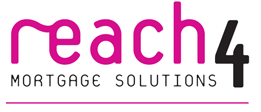Blog
Renting vs Buying
Uncategorized|
07.09.2023

When it comes to finding your next place to call home, the age-old question often arises: Should you rent or buy? Each option has its own set of advantages and considerations. In this blog post, we’ll explore the pros and cons of renting and buying, along with some valuable tips to help you make an informed decision.
Renting: The Perks
1. Flexibility
Renting offers flexibility that buying cannot match. Leases are typically shorter in duration, making it easier to adapt to changing circumstances, like job relocations or lifestyle shifts.
2. Lower Initial Costs
Renting usually requires a smaller upfront financial commitment. You won’t need a substantial down payment, and some utilities or maintenance costs may be included in your rent.
3. Maintenance Responsibility
Renters often enjoy the convenience of having landlords handle repairs and maintenance, leaving you with fewer responsibilities.
Renting: The Considerations
1. Limited Equity
Renting does not build equity like homeownership does. Over time, your monthly payments do not contribute to ownership or potential property appreciation.
2. Less Control
Renting means abiding by the rules set by your landlord, which may limit your ability to personalise or make changes to the property.
3. Rent Increases
Rent can increase over time, making it challenging to budget for long-term housing expenses.
Buying: The Perks
1. Build Equity
Homeownership allows you to build equity as you pay down your mortgage. This can be a significant financial advantage in the long run.
2.Personalisation
You have the freedom to make changes and improvements to your property, tailoring it to your preferences.
3. Stability
Owning a home can provide a sense of stability and security, knowing that you have a place to call your own.
Buying: The Considerations
1. Financial Commitment
Purchasing a home often requires a substantial down payment, and you’ll be responsible for ongoing maintenance and repair costs.
2. Limited Flexibility
Homeownership can make it more challenging to adapt to changes in your life, such as job relocations.
3. Market Volatility
The market can be unpredictable, and the value of your home may fluctuate.
Tips for Making the Right Choice
1. Assess Your Financial Situation
Consider your current financial stability, long-term goals, and how much you can comfortably afford for housing expenses.
2. Think About Your Lifestyle
Take into account your lifestyle, future plans, and how long you plan to stay in the area. Renting may be a better fit for those who anticipate frequent changes.
3. Calculate the Costs
Compare the costs of renting (monthly rent, utilities, potential rent increases) to the costs of buying (mortgage, property taxes, insurance, maintenance).
4. Consult a professional estate agent
A knowledgeable estate agent can provide valuable insights into local housing markets and help you make an informed decision.
5. Consider Your Long-Term Goals
Think about your long-term financial goals. If building equity and long-term financial stability are priorities, homeownership may be the better choice.
6. Factor in Emotional Aspects
Don’t forget to consider how each option aligns with your emotional and lifestyle preferences. Your happiness in your chosen home is just as important as the financial aspects.
In the end, the choice between renting and buying should be based on your unique circumstances and priorities. There is no one-size-fits-all answer, so take your time, weigh the pros and cons, and consult with professionals to make the right decision for your future. Whether you choose to rent or buy, remember that your home is where your heart is, and it should be a place that suits your needs and aspirations.
Written by Name of Author









